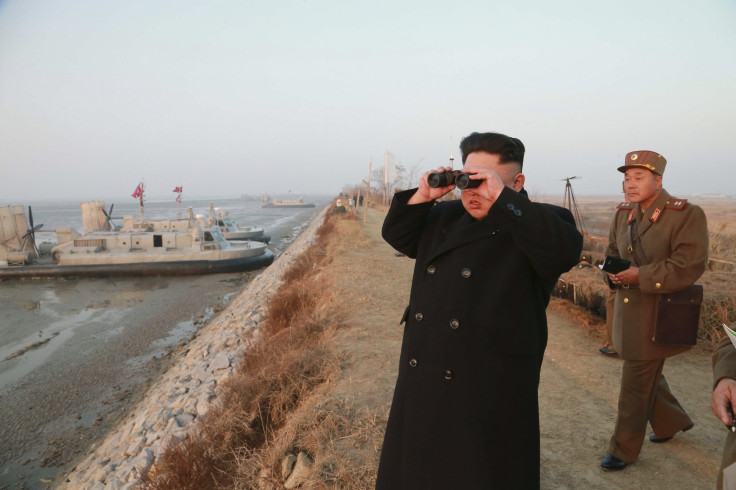North Korea Sony Hack: South, North Cross-Border Tensions Run High

As cross-border tensions run high, fear of provoking their northern neighbor now weighs even heavier on South Korea, after the U.S. Federal Bureau of Investigation determined the North Korean government is responsible for the cyberattack on Sony Pictures Entertainment. An unnamed official at the defense ministry in South Korea’s capital of Seoul told Reuters Friday that North Korea’s potential to attack the South’s infrastructure through computer hacking is an emerging threat, noting that Seoul first established its Cyber Command in 2010.
South Korea knows all too well the implications of a cyberattack by the North. More than 30,000 computers at South Korean banks and broadcast companies experienced an outage in March 2013 following a second attack on South Korean government websites. An investigation by South Korean police revealed that many of the malignant codes used in the attacks were similar to ones previously used by North Korea, an official at the South Korean Ministry of Science told CNN. As in the Sony attacks, North Korea denied any involvement. A spokesman for the General Staff of the Korean People’s Army called the allegations “a deliberate provocation to push the situation on the Korean Peninsula to an extreme phase,” according to KCNA, the North Korean state news agency.
“North Korea’s ultimate goal in cyberstrategy is to be able to attack national infrastructure of South Korea and the United States,” Kim Heung-kwang told Reuters. Kim is a former computer science professor and North Korean deserter who came to South Korea in 2004 but maintains links with the Northern community. “The hacking of Sony Pictures is similar to previous attacks that were blamed on North Korea and is a result of training and efforts made with the goal of destroying infrastructure,” he told Reuters on Friday.
Tensions between North and South at the Korean demilitarized zone have reportedly escalated in recent weeks. A South Korean Christian group dropped plans Friday to install a nearly 100-foot-tall Christmas tree-shaped tower near the heavily fortified border after North Korea threatened retribution if the tree was lit, according to the Guardian. “The establishment of our Christmas tree [tower] was to be a religious event aimed at promoting peace,” Hong Jae-Chul, a senior official of the Christian Council of Korea, told the Guardian Thursday.
Meanwhile, South Korea’s Constitutional Court on Friday ruled to disband a small left-wing party accused of being pro-North Korea and seeking to undermine the South’s democratic rule. Several members of the opposition party were allegedly plotting an insurgency earlier this year in support of a potential inter-Korean war, the Los Angeles Times reported.
U.S. President Barack Obama said Friday his administration would act “proportionately” to the attack on Sony “in a place and time and in a manner that we choose.” But the president denied providing further details on the strategy. “We cannot have a society in which some dictator someplace can start imposing censorship here in the United States,” Obama said at his year-end press conference Friday. “That’s not who we are. That’s not what America is about.”
U.S. experts told Reuters Thursday that a possible response from the Obama administration could include cyber-retaliation, financial sanctions and a boost in U.S. military support to South Korea to send a stern message to North Korea. U.S. Secretary of the Navy Ray Mabus announced plans last week to boost the American fleet in the Pacific, as U.S. officials meet with top military officials in South Korea to discuss the North. “Any sort of ballistic missile threat or capability of North Korea is potentially very dangerous. I think regardless of where they originate, we have to be prepared,” Mabus told South Korea’s Yonhap news agency last week.
Experts say North Korea is keen on taking down both South Korean and American infrastructures using its hacking capabilities.
© Copyright IBTimes 2024. All rights reserved.





















